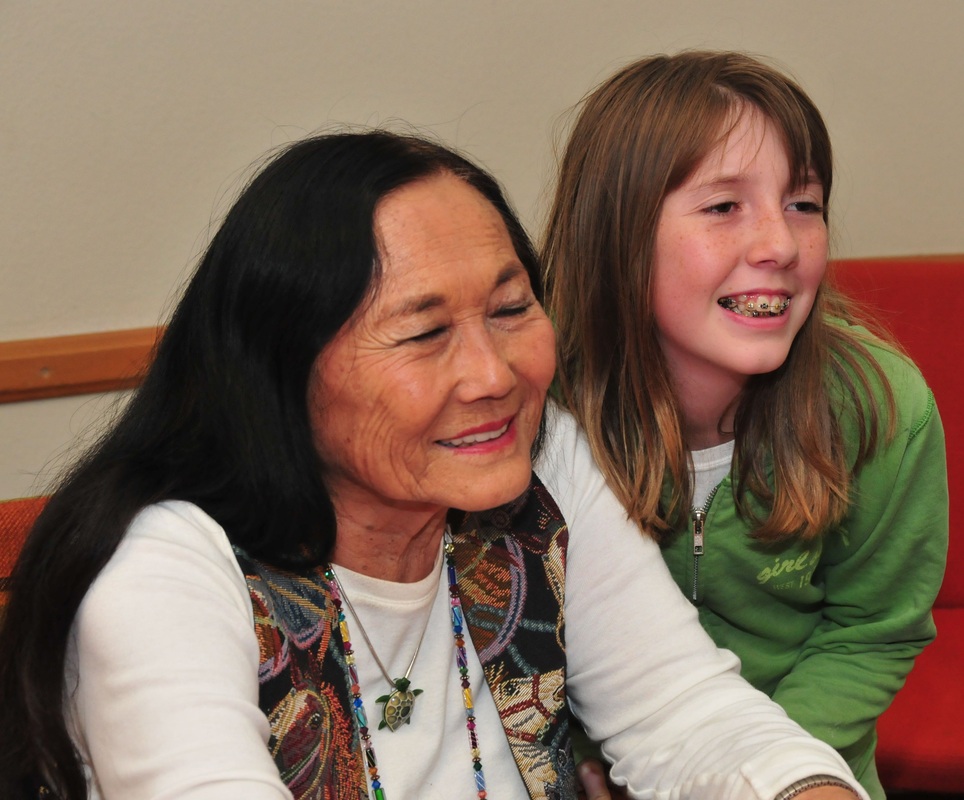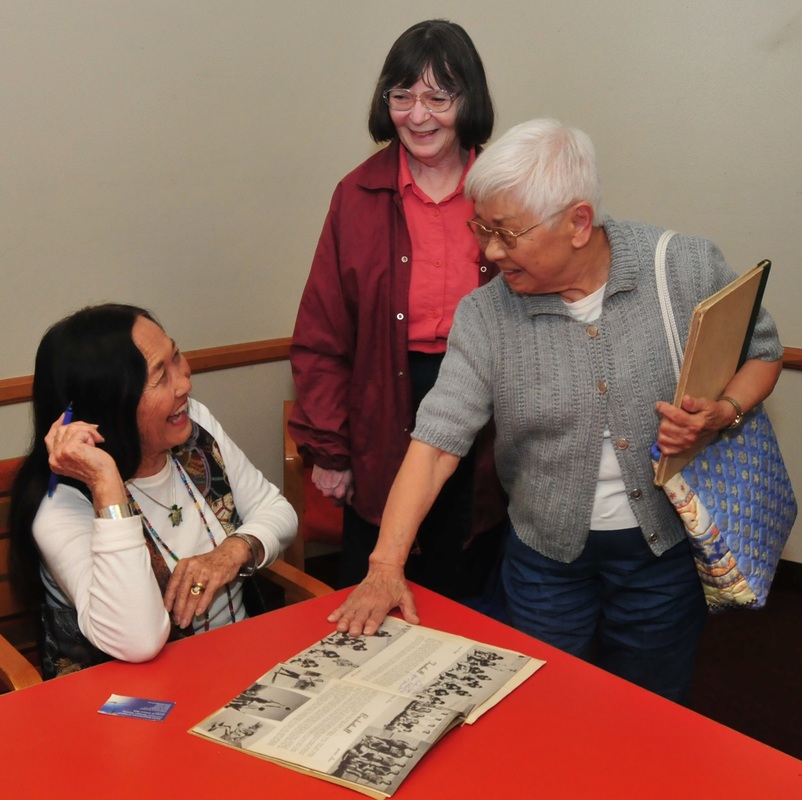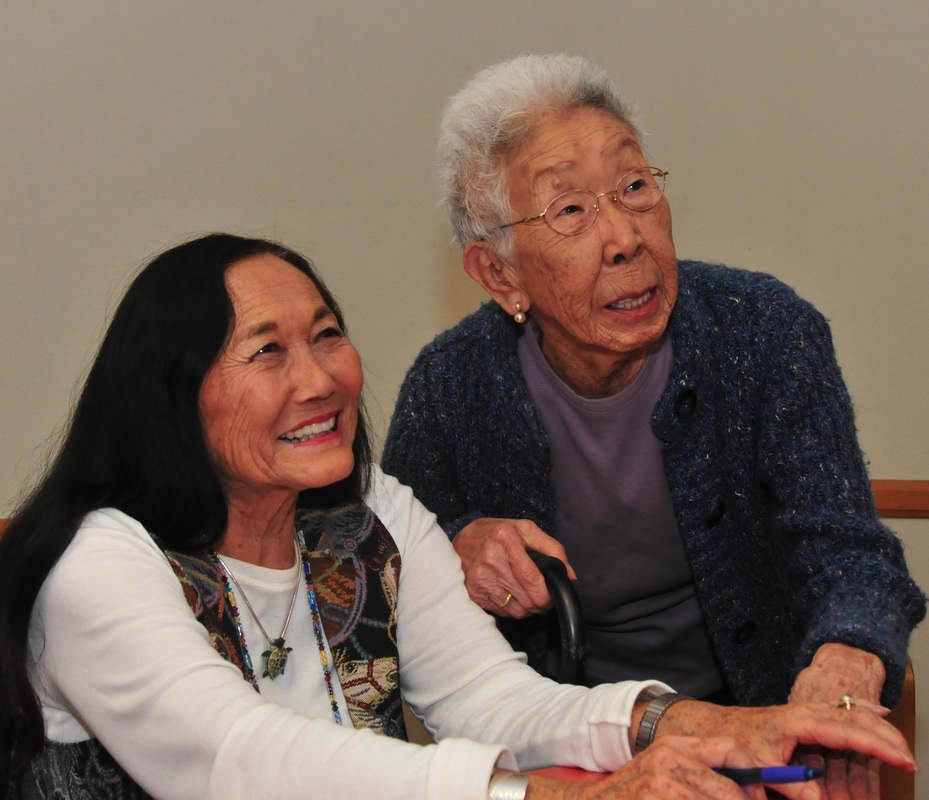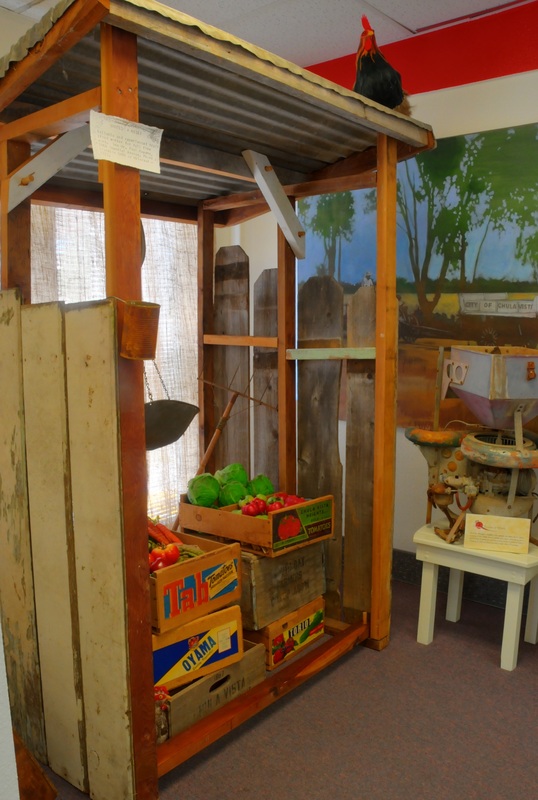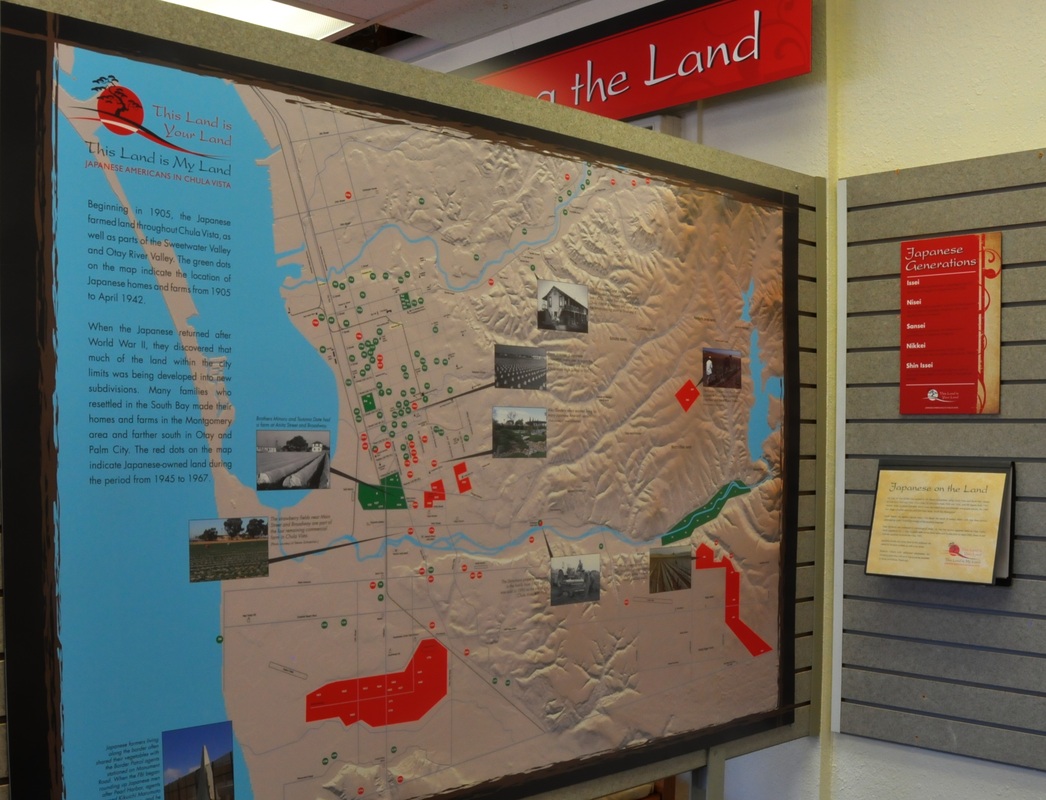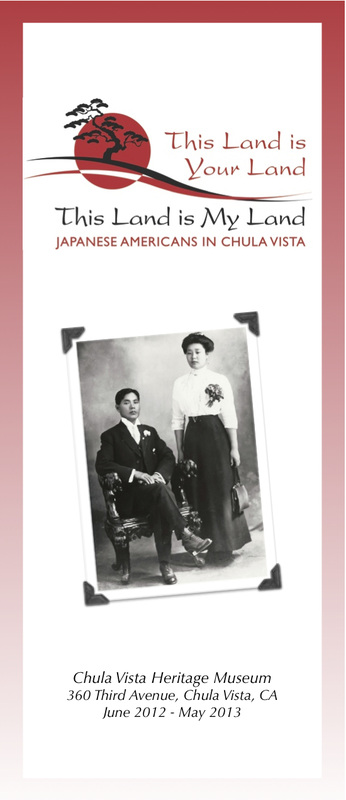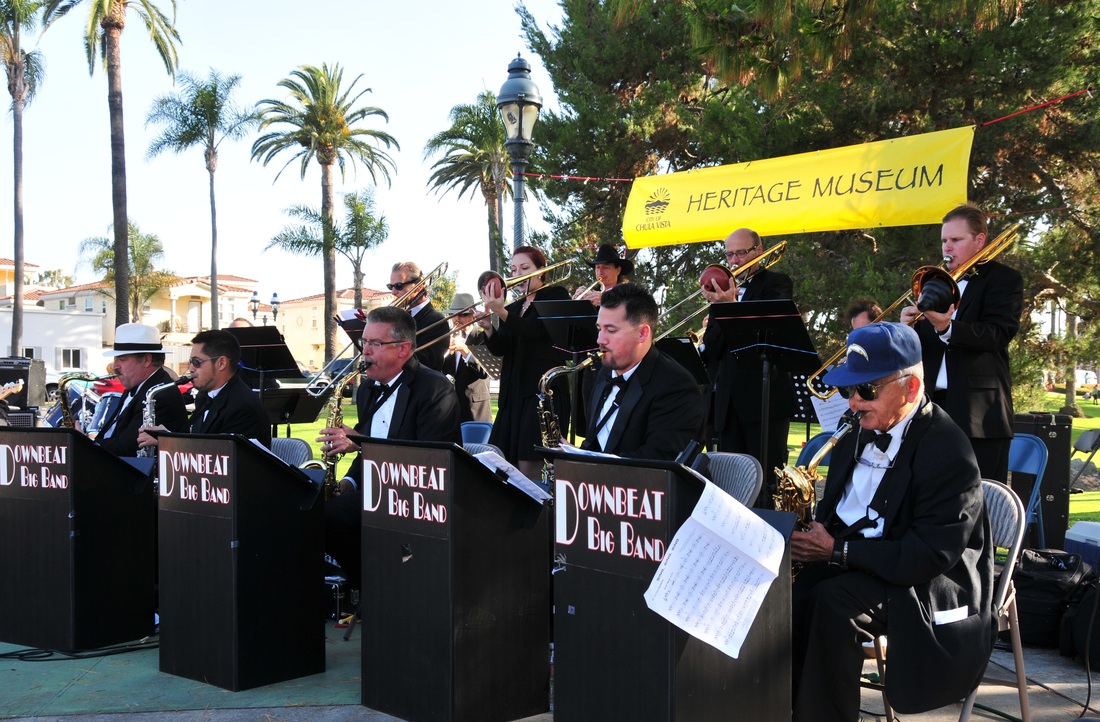Friends Host Manzanar Author
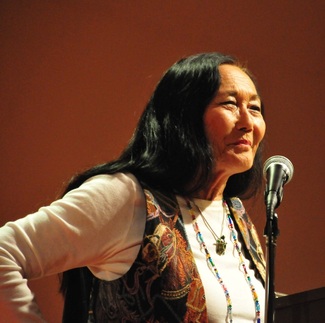
Jeanne Wakatsuki Houston, author of Farewell to Manzanar, visited the Civic Center Library in October to speak about her book and her life in a Japanese internment camp during World War II. Before an audience of about 100 Friends and guests, she recalled her experiences in the California camp and the difficulties she and other Japanese Americans faced in returning home after the war.
And although that event happened more than 70 years ago, Houston noted that it offers a lesson that is relevant today. She and her family were interned, Houston said, because the Japanese living on the West Coast – many of them U.S. citizens – were blamed for the attack on Pearl Harbor on December 7, 1941. "We treat immigrants as scapegoats," she said. "We should know better."
Houston explained that she had never talked about her life during the war until a nephew questioned her nearly 30 years later. Her late husband, novelist James D. Houston, urged her to put her memories on paper and served as her co-author. "This is not just a story for family," he told her. "This is a story that everyone in America should know."
And although that event happened more than 70 years ago, Houston noted that it offers a lesson that is relevant today. She and her family were interned, Houston said, because the Japanese living on the West Coast – many of them U.S. citizens – were blamed for the attack on Pearl Harbor on December 7, 1941. "We treat immigrants as scapegoats," she said. "We should know better."
Houston explained that she had never talked about her life during the war until a nephew questioned her nearly 30 years later. Her late husband, novelist James D. Houston, urged her to put her memories on paper and served as her co-author. "This is not just a story for family," he told her. "This is a story that everyone in America should know."
Several in the audience shared their own internment stories, including Chula Vista resident Sumiko Yamauchi, who reminded Houston that she had lived in the barracks next to hers at the Manzanar internment camp. Yamauchi, holding her wartime diary in the center photo above, also brought a copy of the Manzanar High School yearbook, which Houston promptly signed. The author also signed copies of her book for many of the lecture attendees, who ranged in age from about 9 to 90.
Houston has been touring libraries and schools throughout California for the past six months as part of the Cal Humanities Searching for Democracy project. Her visit here was funded by California Reads, in partnership with Cal Humanities and California Center for the Book, and sponsored by the Friends in conjunction with an exhibit at the Chula Vista Heritage Museum documenting the history of the Japanese community in the South Bay.
Houston has been touring libraries and schools throughout California for the past six months as part of the Cal Humanities Searching for Democracy project. Her visit here was funded by California Reads, in partnership with Cal Humanities and California Center for the Book, and sponsored by the Friends in conjunction with an exhibit at the Chula Vista Heritage Museum documenting the history of the Japanese community in the South Bay.
This Land Is Your Land . . .
|
"This Land Is Your Land, This Land Is My Land," an exhibition celebrating the history of the Japanese American community in Chula Vista, will be on display at the Chula Vista Heritage Museum through May 30, 2013.
Developed in partnership with the Japanese American Historical Society of San Diego, the exhibition includes photographs and artifacts documenting the arrival of the first Japanese immigrants in 1905, the "celery wars" of the 1920s and 1930s, and the Japanese community's internment during World War II. Centerpiece of the exhibit is a full-scale replica of a room in the Poston, Arizona, barracks where about 450 Chula Vista residents were interned during World War II. The 10-by-15 foot room would have housed up to six people and is furnished with furniture made in the camp between 1942 and 1945. Museum board member Imozelle McVeigh was project manager for the exhibit, working with Linda Canada of the JAHSSD. Local historian Dr. Steven Schoenherr created a map showing the location of Japanese farms in the area from 1905 through 1967. Other project team members were Museum intern Amber Tiffany, who assisted with research, and board member Jim McVeigh, who handled logistics. |
Photos courtesy of Jim McVeigh and Steve Schoenherr
|
|
In conjunction with the exhibit, the Chula Vista Public Library is promoting the reading and discussion of the book Farewell to Manzanar, a first-person account of the internment by Jeanne Wakatsuki Houston and her husband, James D. Houston. The Friends brought Mrs. Houston to Chula Vista for a discussion of her book on Wednesday, October 10.
Funding for the exhibit and related activities is provided through a grant from California Reads. California Reads programs are made possible with support from Cal Humanities in partnership with California Center for the Book. |
